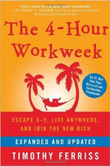What’s Up With Grand Theft Auto?
Brandon Sun, August 18, 2005 - David McConkey
A recent controversy about the rating of one of
the Grand
Theft
Auto video games alerted me to the popularity of
the game and really got me thinking.
Grand
Theft Auto: San Andreas, the sixth of the wildly
successful series of video games, had its rating changed. The reason?
The discovery of a hidden sex scene which can be unlocked using a free
modification available on the Internet. The sex scene grabbed the
attention of American Senator Hilary Clinton and other legislators.
The ratings change made the news because video games are really,
really, big business.
The Entertainment Software Rating Board changed the game’s
rating from M (Mature, for those aged 17 and over) to AO (Adult Only,
for those aged 18 and over).
But what is the difference between a video game sold to those aged 17
and over, and one sold to those 18? Lots, it turns out. Large chains
such as Future Shop and Wal-Mart don’t carry the AO games.
As a result of the rating change, the company which makes the Grand
Theft Auto games lowered its sales projections from $170 million to
$160 million, for the next quarter. (Of course, these games are avidly
played by youngsters of all ages, despite the official rating.)
The Grand
Theft Auto series of games have been enormously
popular. They have sold in the tens of millions, with total sales in
the billions of dollars.
For older people like me, who don’t play video games and are
out of touch with the genre, seeing a Grand Theft Auto game is quite a
shock. They aren’t like the Pac-Man or Mario Brothers of
yesteryear.
These new games are complicated animations, with multiple options for
storylines. The Grand
Theft Auto games have “unprecedented
production value,” enthuses Wal-Mart on its website, “uniting
gameplay and narrative in a cinematic gaming experience.”
They feature a “huge, open environment with hundreds of
interior and exterior locations and incredible details full of
inhabitants who interact with you and one another.”
You, as the game player, are literally in the driver’s seat
as you cruise the streets looking for adventure. And they are violent.
You beat people up, kill people (including police officers), steal
cars, sell drugs – whatever it takes.
“You’ll have to rob, steal and kill just to stay
out of serious trouble,” gushes Wal-Mart, “these
games provide worlds of drama, danger, and death.”
I’ve watched the regular game being played as well as the
controversial sex scene. I must say I’m personally much more
offended by the violence and killing than I am by the sex.
I guess I’m from the old school of those who think
it’s better to “make love, not war.” I
was a member of the generation of parents who tried to get our young
kids to play with dolls and trucks, instead of toy guns and soldiers.
By the way, the sex scene is not that graphic, it is consensual, and it
is - after all - only a cartoon!
One very important question: do such games encourage similar behavior
in real life? After all, as a society we would like to reduce actual
theft, violence, and murder.
These new video games surprise and shock us older folks. But we parents
over the years have warned of the supposed dangers of each new popular
medium as it came along, whether paperback novels, movies, comics, TV,
rock ‘n’ roll music, and now the Internet.
Crime – especially auto theft – is of special
relevance to those of us here in Manitoba. Among cities, Winnipeg is
the worst in the country for overall crime. In auto theft, Manitoba is
actually the worst in North America!
Damages to property, injuries, even deaths, are the result of this
Manitoba real auto theft rampage. And, it just got a whole lot more
dangerous as Manitoba thieves now weigh down the gas pedals of stolen
vehicles and launch them as driverless missiles down the street.
Most Manitoban car thieves are kids younger than 18. While some are as
young as 11, the majority start when they are 13. Whatever causes this
Manitoba crime wave, I don’t think it is Grand Theft Auto.
The video games are widely played throughout North America, but real
auto theft is much worse here.
Could video games actually be improving us? This is the thesis of
Steven Johnson’s book Everything
Bad is Good for You: How Today's Popular Culture is Actually Making Us
Smarter.
(on Amazon.ca)
In the United States, as Johnson points out, auto theft is down
substantially since the first Grand Theft
Auto game was released in
1997. Violent crime has dropped dramatically in the last ten years,
coinciding with the release of more violent video games. Could it be,
asks Johnson, that would-be auto thieves and other criminals are now
“getting their thrills on the screen instead of the
street?”
Johnson also cites several large-scale studies which have been tracking
American kids since the 1970s. They find that today’s youth
are not only less violent, but also do better academically.
We need to know more. Hilary Clinton and ultraconservative politician
Rick Santorum could work together to back legislation funding research
on the effect of media on kids.
What about in Manitoba? In Brandon, you can be robbed at gunpoint by a
14 year old. You are more than three times as likely to be murdered in
Winnipeg as in Montreal or Toronto. Your chances of being a victim of
auto theft are much higher in Manitoba than in the United States or
other provinces in Canada.
The Manitoba government has just passed a law to punish retailers who
sell mature video games to kids. The idea is to provide the best
environment for our youth, but are we going in the right direction?
I’m left with a discomforting thought. Wouldn’t we
be better off if Manitoba kids were getting their kicks by stealing
cars and killing people in a video game, instead of in real life?
See also:
Think Outside the Box with Holiday Gift-Giving
Maybe a Little Fox News Would Liven Things Up
Popular Right Now:
- 15 Tips for Healthy Eating
- Quality of Life, Well-Being Research Something We Can Feel Good About
- Diets Don't Work, So What Does?
- Political Contributions: Top Ten Canadian Tax Tips
- Nestle Fitness 14 Day Weight Loss Program; What is Wrong Here?
- Charitable Donations: Top Ten Canadian Tax Tips
Must Read Books:
The 4-Hour Workweek:
Escape 9-5, Live Anywhere, and Join the New Rich

What You Don't Know About Religion (But Should)

In Defense of Food:
An Eater's Manifesto

The Life-Changing Magic of Tidying Up:
The Japanese Art of Decluttering and Organizing

Don't
Even Think About It:
Why Our Brains are Wired to Ignore Climate Change

Like This? Share It!
Press Ctrl + D to Bookmark!
